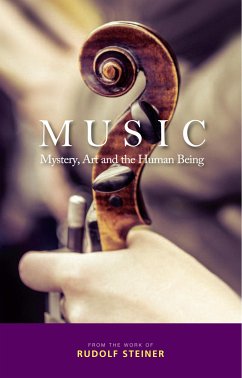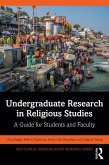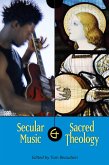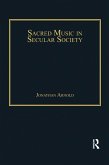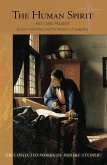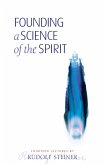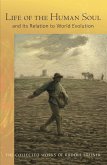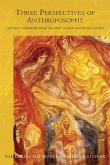What is music? Rudolf Steiner regards the essence of music as something spiritual, inaudible to the senses. The world of tones, borne on the vibrations of air, is not the essential element. 'The true nature of music, the spiritual element in music', he says, 'is found between the tones, lies in the intervals as an inaudible quality.'
Rudolf Steiner spoke repeatedly about music as something inherent both in the cosmos and the human being. It played an important role in many forms of ritual and worship, and people once perceived a link between music and the world of stars, which was seen as the dwelling place of the gods. Nowadays our view of music is divorced from such religious outlooks, but research repeatedly demonstrates the profound effect it continues to have on us. In this unique anthology of texts, compiled with a commentary and notes by Michael Kurtz, Steiner describes the realm of the spiritually-resonating harmonies of the spheres and our intrinsic connection to this cosmic music. He also explores the phenomenon of musical listening and experience, as well as Goethe's approach to music.
Dieser Download kann aus rechtlichen Gründen nur mit Rechnungsadresse in A, B, BG, CY, CZ, D, DK, EW, E, FIN, F, GR, H, IRL, I, LT, L, LR, M, NL, PL, P, R, S, SLO, SK ausgeliefert werden.

